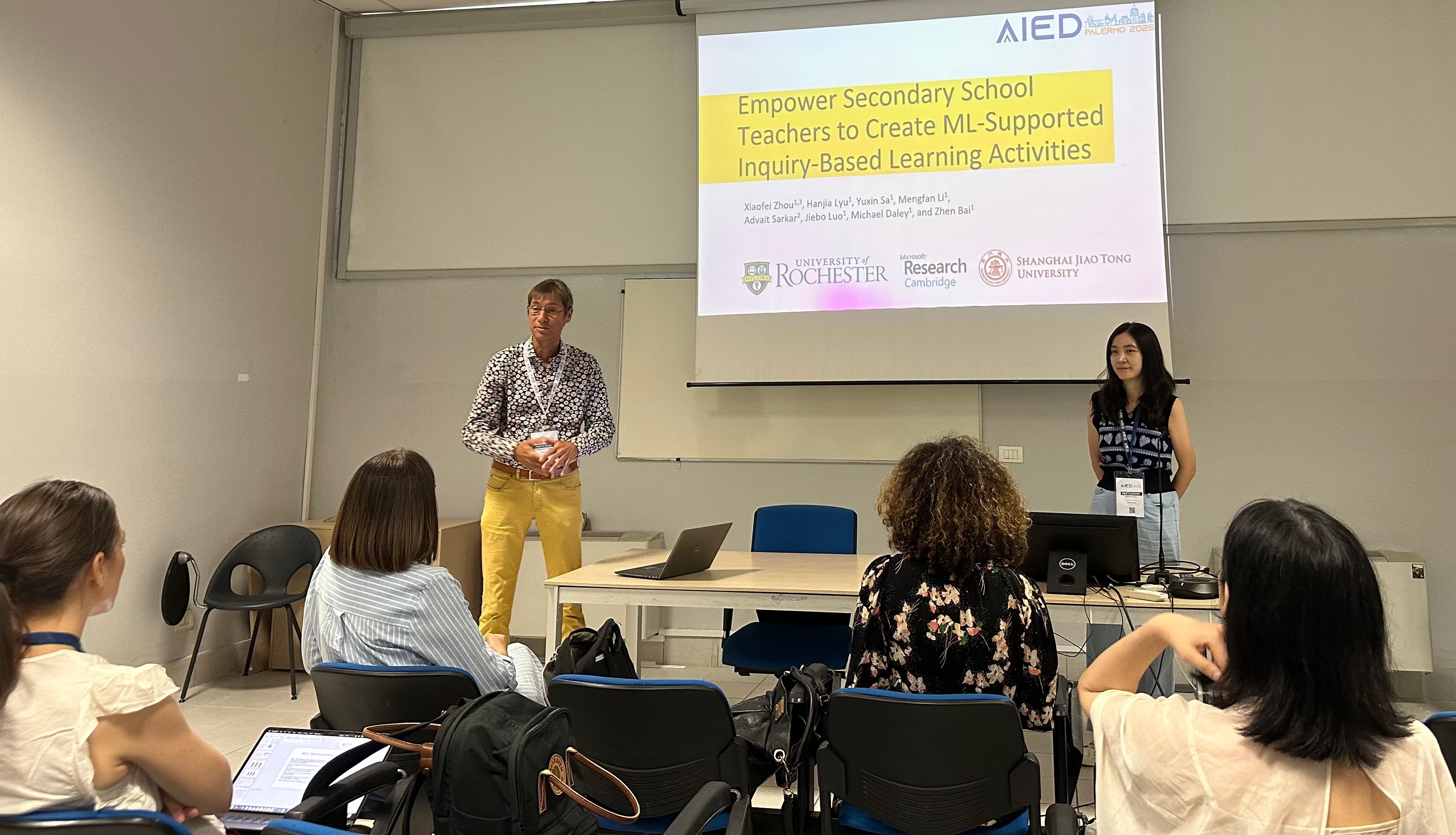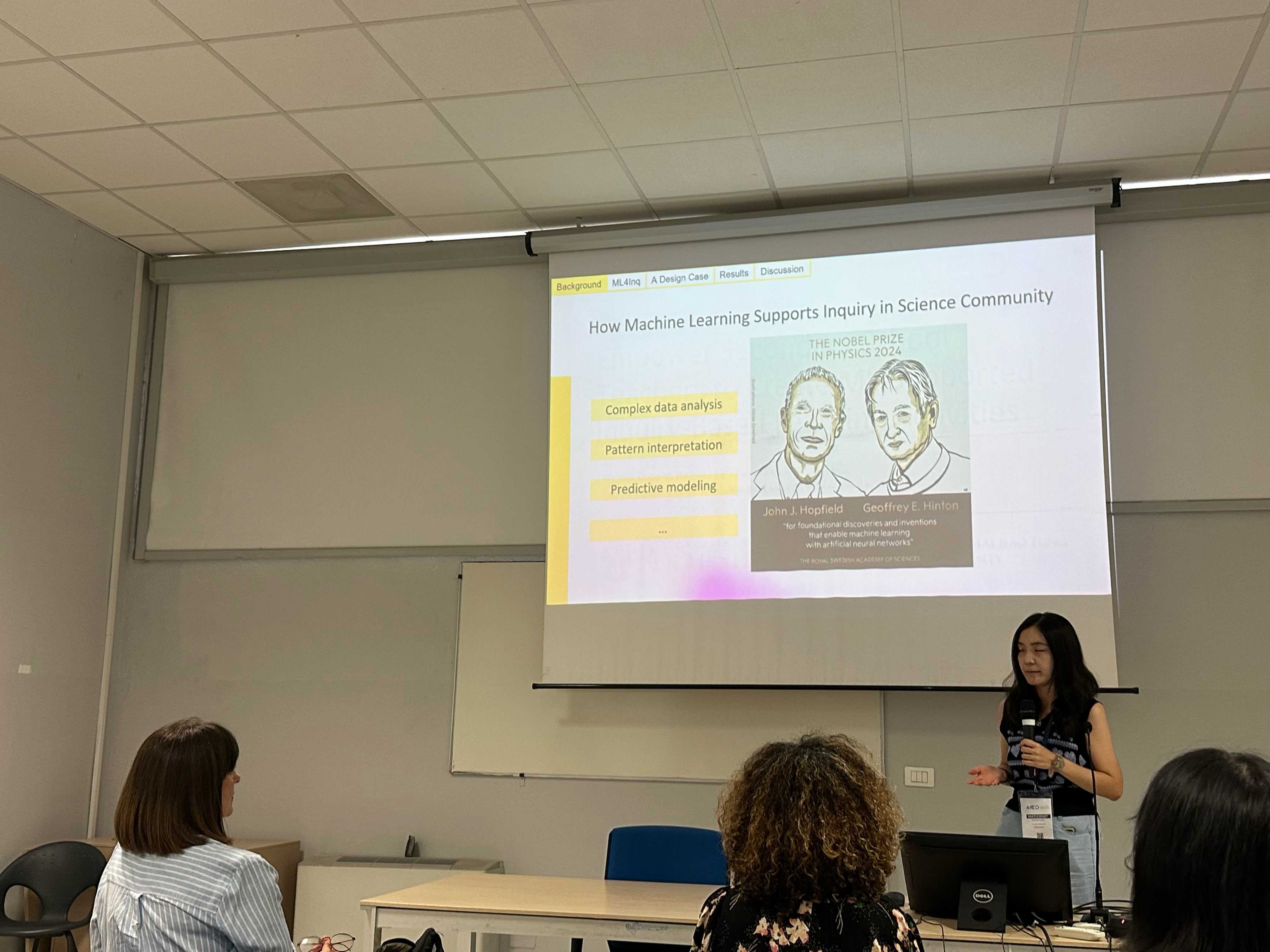Dr. ZHOU Xiaofei, Assistant Professor, at the Center for Future Education of SOE, recently served as the first author on a paper presented at the International Conference on Artificial Intelligence in Education (AIED 2025). Titled "Empower Secondary School Teachers to Create ML-Supported Inquiry-Based Learning Activities", the paper introduces an innovative online authoring tool called ML4Inq that helps K-12 teachers overcome the challenges of integrating machine learning (ML) into their class teaching.

AIED is a premier platform where global scholars in the intersection of education and artificial intelligence share cutting-edge ideas and innovative research. The conference is renowned for its rigorous academic standards and brings together top experts from various fields—including computer science, education, and cognitive science—to explore how intelligent technologies can empower the future of education. The 26th AIED conference was held in Palermo, Italy.
How ML4Inq Helped a History Teacher Break Down the Technical Barriers and Embrace Data-Driven Inquiry-Based Learning
In her presentation, Dr. ZHOU shared a thought-provoking story that vividly illustrated the value of her research. The protagonist of the story was a secondary school teacher with 31 years of experience teaching World History. Initially, the research participant expressed reservations about her suitability for the study, citing an inability to identify viable methods for integrating data and AI into her World History curriculum.

Facing this common confusion, Dr. ZHOU's team did not give up. They recognized that many teachers in non-STEM subjects face the same challenge: how to connect abstract machine learning concepts with specific content from secondary school science or humanities curricula. To help the teacher, the team found a multidimensional dataset on "the social complexity of ancient civilizations". This dataset included 12 data features from 185 ancient sites, including social, cultural, political, and economic dimensions.
When the teacher saw this dataset, which was highly relevant to her subject, and the ML4Inq tool, her attitude completely changed. This marked a shift from her initial resistance to data-driven teaching to a strong interest in AI-supported inquiry-based learning.
A Leap in Teaching Confidence and the Broad Applicability of ML4Inq
After completing the course design, the history teacher's confidence and interest greatly increased. She stated that she could "truly see high school students in my class benefiting from this now."
The story of this history teacher fully demonstrates the broad applicability and effectiveness of ML4Inq. The study recruited 14 middle school teachers from various subject backgrounds. Through this research, teachers successfully created 26 inquiry-based activities that applied machine learning algorithms across multiple fields, including biology, history, and social science. This not only challenges the stereotype that AI education is limited to STEM subjects but also provides a practical pathway for teachers of all disciplines to integrate AI into their teaching.
The results of this exploratory study expand new possibilities for the application of artificial intelligence technology in K-12 education and provide valuable insights for the design of future educational tools and teacher professional development.
Written by ZHOU Xiaofei
Proofread by NIU Jiayi
Edited by CHEN Ruoxi